You might have sleep apnea and not even know it.
Sleep apnea is a condition that affects roughly 22 million Americans, and can increase your risk of heart attack and high blood pressure. (1) Unfortunately, sleep apnea commonly goes undiagnosed, as it’s not easy to know the difference between regular old snoring and sleep apnea symptoms.
Diagnosing sleep apnea can be challenging for women. Unlike men, who are more likely to wake up gasping in the middle of the night, symptoms in women are more subtle, like anxiety and depression.
Want to train your brain to be happier and healthier?
Click here to receive our FREE 7-Day Meditation Challenge!
If you keep your partner up by snoring all night, it’s time to check in and find out if you’re suffering from sleep apnea.
What Is Sleep Apnea?
Sleep apnea is a condition that happens when the throat muscles relax during sleep, blocking your upper respiratory tract and making it harder to breathe. (2) This blockage can cause a reduction in airflow, or in severe cases, can stop the flow of oxygen entirely. (3)
There are three different kinds of sleep apnea:
- Obstructive Sleep Apnea: When there’s a reduction in airflow during sleep, or when the airflow completely stops.
- Central Sleep Apnea: When the brain fails to send signals to breathe. (4)
- Complex Sleep Apnea Syndrome: Also known as treatment-emergent central sleep apnea, this is a combination of both obstructive and central sleep apnea. (5)
If your healthcare provider suspects that you might have sleep apnea, a sleep study can diagnose this condition. The sleep study will look at how many episodes of reduced or stopped breathing occur in a one-hour period during sleep. It will also show what your blood oxygen levels were during these sleep apnea events. (6)
Common Sleep Apnea Symptoms
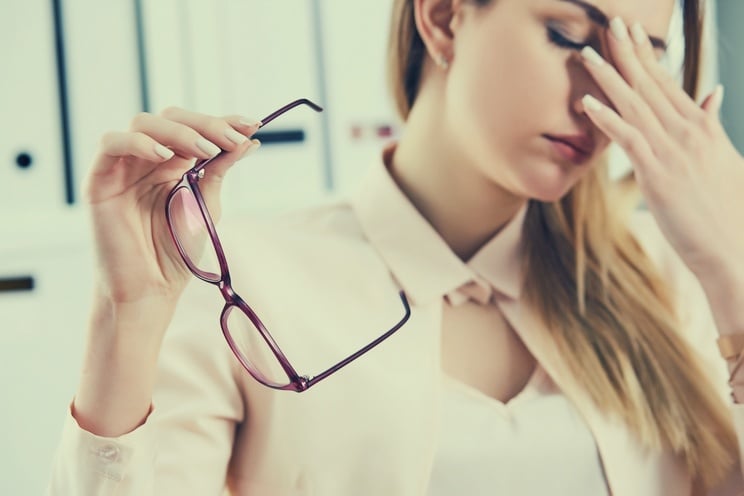
So, how do you know if you suffer from sleep apnea? Here are seven of the most common signs and symptoms to watch out for. (7, 8)
- Snoring
- Gasping during sleep
- Chronic fatigue
- Waking up with a dry mouth
- Difficulty staying asleep
- Irritability
- Difficulty concentrating
- Fatigued when awake
- Anxiety and depression (mostly among women)
Undiagnosed sleep apnea can cause issues with your mood and energy levels due to a significant disruption in the quality of your sleep.
When sleep apnea goes undiagnosed or untreated for extended periods of time, it can cause high blood pressure, heart attack, and other heart issues due to the drop in blood oxygen levels. (9) The frequent drop in blood oxygen puts wear and tear on the cardiovascular system.
Sleep Apnea vs. Snoring: What’s the Difference?
If you are one of the 90 million Americans who snores during sleep, you may be wondering if it’s caused by sleep apnea or if you just happen to be a loud sleeper. (10) Since snoring is a big symptom of sleep apnea, how can you tell the two apart?
Well, about half of the 90 million Americans who snore are what’s known as “primary snorers”. (11) However, the other half of those snorers may, in fact, have sleep apnea.
One way to tell the difference between snoring and sleep apnea is if you wake up choking or gasping for air.
First, let’s talk about what snoring actually is. Snoring is caused by tissue in the back of your throat relaxing and partially blocking your airway, which leads to noisy sleep. (12) Some people may be much louder snorers due to higher body weight, alcohol consumption, and age.
One way to tell the difference between snoring and sleep apnea is if you wake up choking or gasping for air. This is almost always the result of sleep apnea. Waking up tired is another common sign your snoring may be more than just an annoyance, as chronic daytime sleepiness is a common symptom of sleep apnea. Sleeping with your mouth open is another telltale sign, so if you can, ask a partner to keep an eye out for that one. If you suffer from sleep apnea, you are also more likely to snore more regularly, and very loudly. (13)
However, just because you snore doesn’t mean you automatically have sleep apnea. Your snoring could be caused by things like nasal congestion, being overweight, smoking, and drinking. It is also suspected that men snore more than women simply because men have narrower air passages. (14) But women can certainly snore too, and can also suffer from sleep apnea.
The Difference Between Sleep Apnea in Men and Women
Sleep apnea is commonly thought of as a condition that affects men, and men are, in fact, twice as likely to have sleep apnea. (15) However, women get sleep apnea too, but symptoms often present differently. As a result, women are more likely to be misdiagnosed.
While men often experience more common symptoms like snoring and waking up gasping for air, women may be more likely to experience symptoms such as anxiety and depression. (16) This has to do with the fact that female brain structures are impacted more by sleep apnea than men’s brain structures. While the number of apneic events per hour are generally lower in women, they also tend to experience a wider variety of symptoms, like anxiety and depression at lower diagnostic levels. This leads to the conclusion that sleep apnea causes different symptoms in men and women due to differences in brain structure. (17)
However, keep in mind that men can also experience symptoms of anxiety and depression as a result of sleep apnea, as sleep deprivation can cause an anxiety disorder. (18) Sleep disorders like sleep apnea interfere with the quality of your sleep and can thus lead to symptoms of anxiety and stress.
5 Natural Ways to Sleep Better
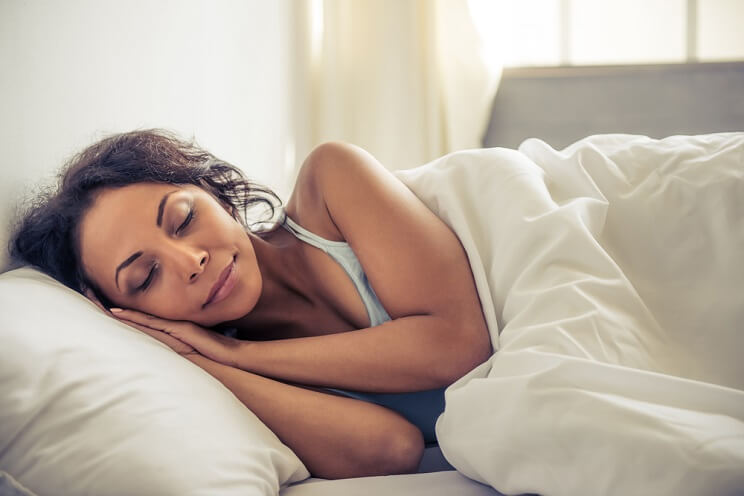
Sleep plays a vital role in our overall health, and an undiagnosed sleep apnea can affect our physical and mental well-being. If you suspect you may be suffering from sleep apnea, it is essential to speak with a healthcare provider to get treatment as quickly as possible. Some treatment options may include dental appliances to help with jaw and tongue repositioning, airway surgery, and recommendations on living a healthy life through diet and exercise. (19)
A CPAP machine is another commonly prescribed treatment options for those suffering from sleep apnea. CPAP stands for continuous positive airway pressure, and its purpose is to keep your airways open while you sleep. The machine works by sending airway pressure to your throat. (20)
In the meantime, if you’re struggling with chronic snoring or poor sleep habits, here are natural ways to help you sleep better.
Manage a Healthy Weight
Being overweight can increase your risk of both snoring and developing sleep apnea. Research shows that losing weight can help reduce sleep apnea symptoms, so making healthy dietary choices is an important piece to the puzzle. (21) Strive to eliminate sources of added sugar and as many processed foods from your diet as possible. Focus on consuming whole, nutrient-dense options like fresh fruits, vegetables, grass-fed meats, and healthy fats like coconut, olive oil, nuts, seeds, and avocados.
A Paleo diet is a great approach to supporting a healthy weight, since you will naturally be consuming more naturally anti-inflammatory foods while also eliminating all sources of processed foods.
Exercise Regularly
Not only will regular exercise help you maintain a healthy weight, but it can also help improve sleep! (22) Exercise can help reduce feelings of stress and anxiety, which are often things that keep people tossing and turning all night. Try adding daily exercise to your routine to see how much better you sleep each night.
Cut Back on Drinking
Alcohol consumption can cause snoring because it relaxes the muscles in the back of your throat. If you are a chronic snorer or have sleep apnea, consuming alcohol can make the condition worse. (23)
Try a Neti Pot
If you snore often, try using a neti pot to clear nasal congestion before you go to bed. This can help loosen the mucus and make it easier to breathe out of your nose. Chronic nasal congestion can also lead to a risk of developing sleep apnea, so keeping your nasal passage open can only help more. (24)
Monitor the Humidity in Your Room
Have you ever woken up with a stuffy nose during the winter months when you have the heat running? Dry air can make our nasal passages dry, which can lead to mouth breathing, and yes, snoring! So, you may want to use a humidifier in the winter months to help prevent that very uncomfortable nasal congestion almost all of us experience during the winter. It is recommended that you keep your humidity level at 50% to help promote better sleep. (25)
The Bottom Line
Sleep apnea is a serious condition. It can impair your overall quality of life and can put you at a much greater risk of cardiovascular health issues. If you experience symptoms of sleep apnea, reach out to a health care practitioner and request a sleep study that can diagnose or rule out sleep apnea. Sleep apnea is treatable, and certain lifestyle and dietary changes can go a long way. The sooner you uncover sleep apnea, the sooner you can treat the symptoms and be well on your way to feeling healthier and much more rested!
(Read This Next: If You Wake Up with Numbness in Your Fingers, Here Are 3 Ways to Fix It)


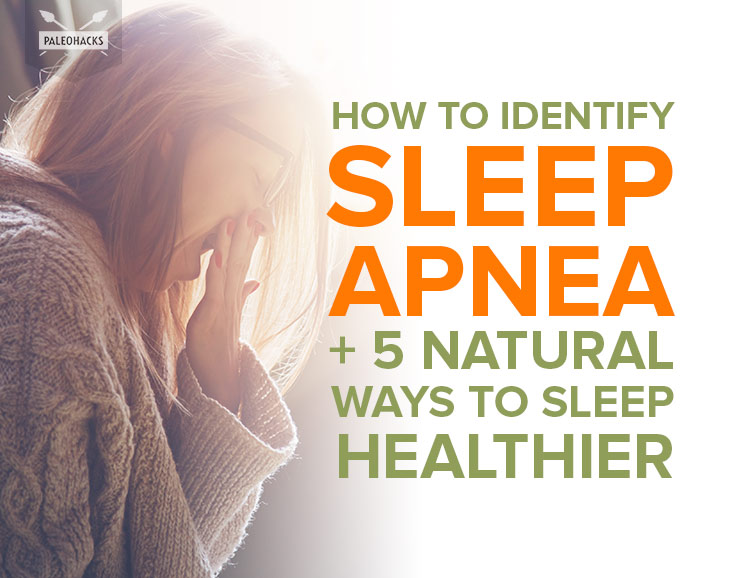
 DIY Yawn-Be-Gone Shower Bombs
DIY Yawn-Be-Gone Shower Bombs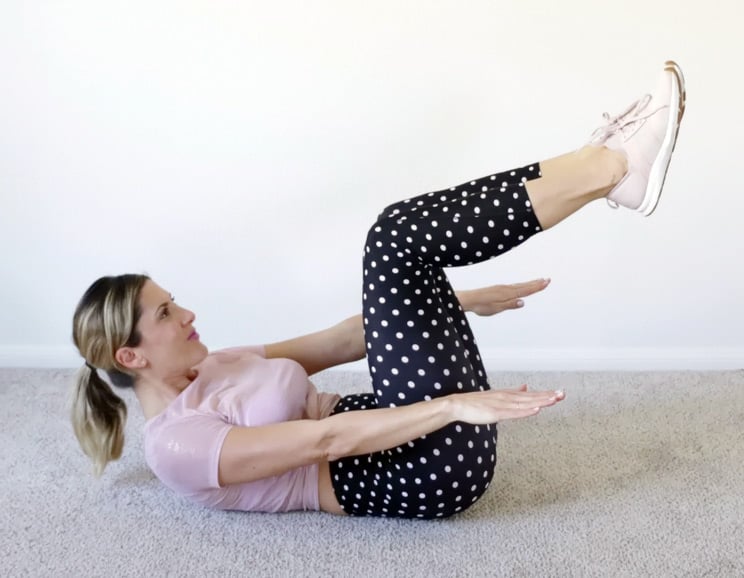
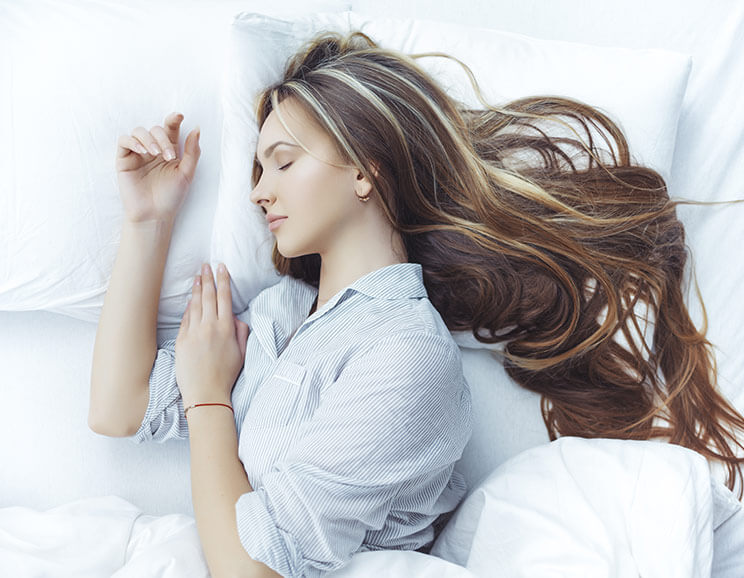


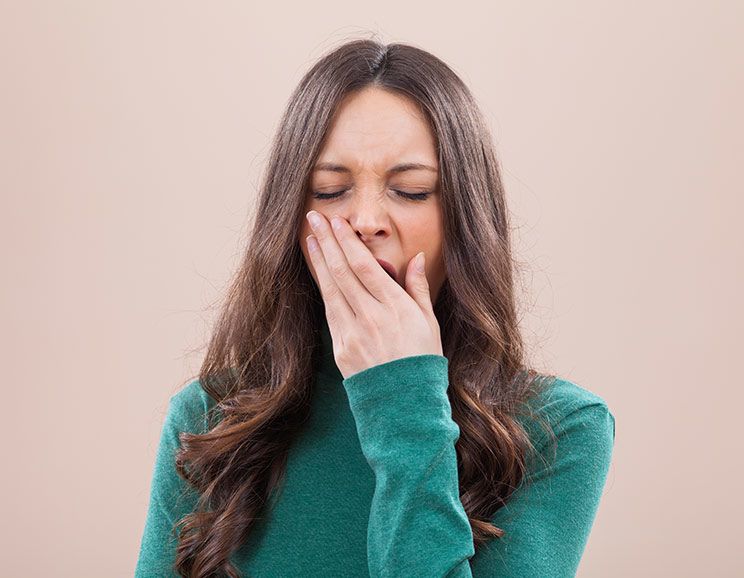
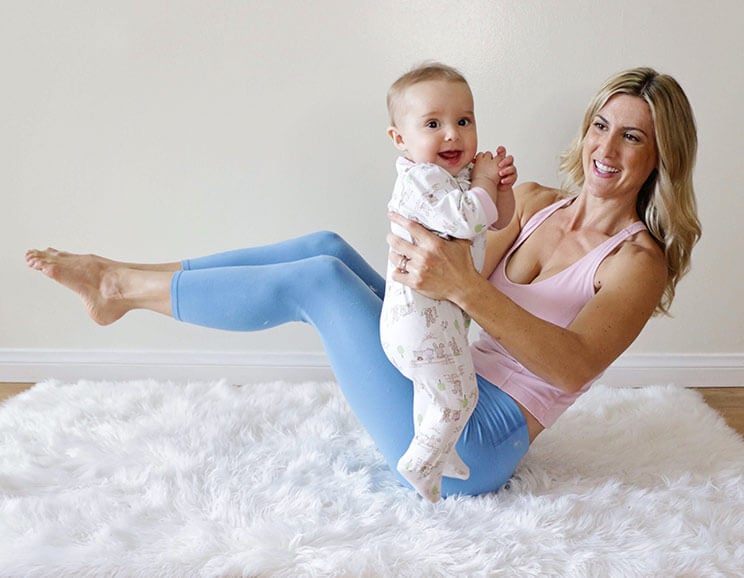

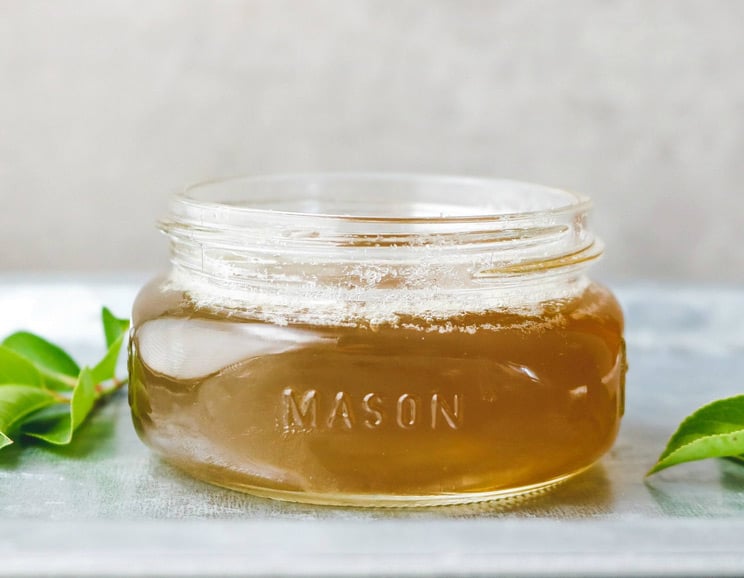
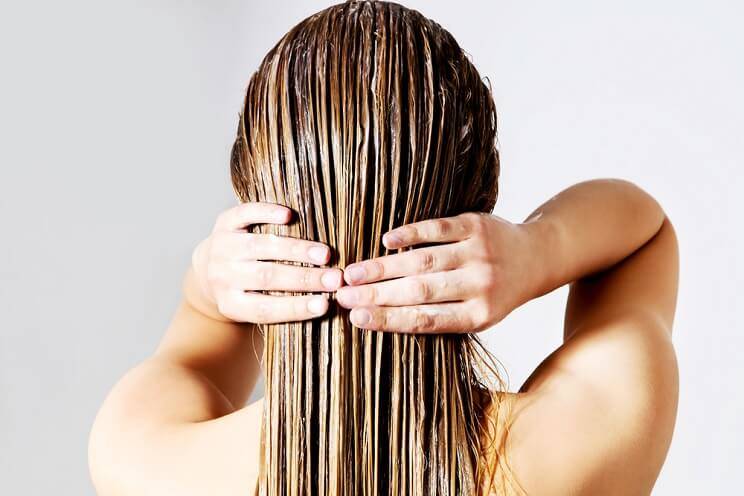
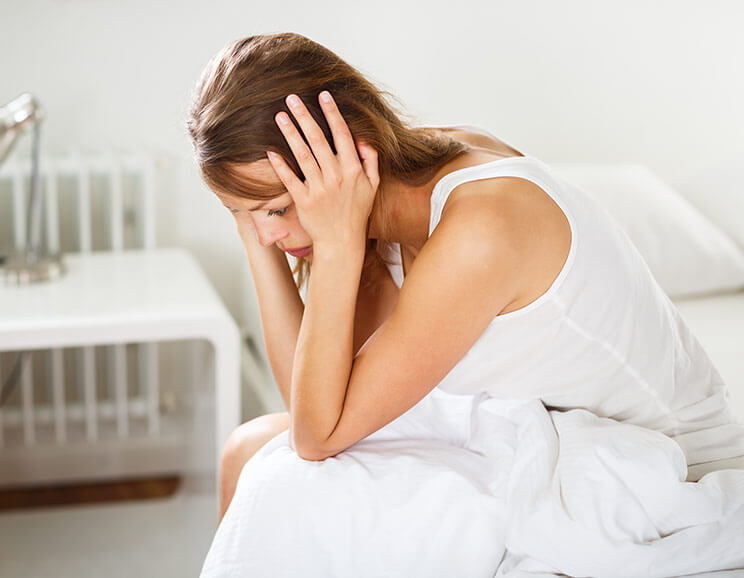
Show Comments